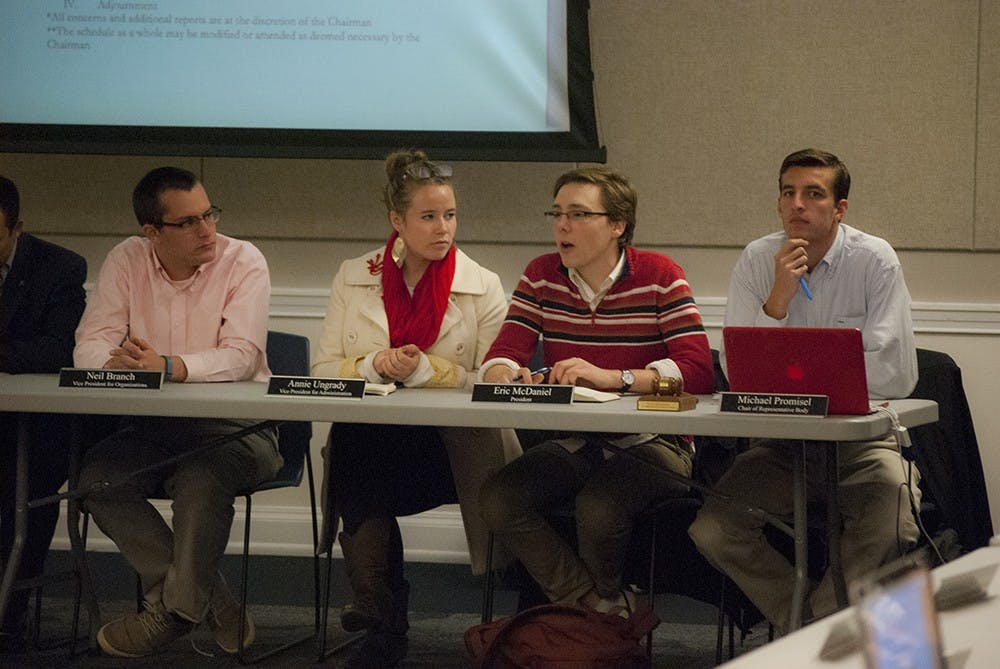Student Council unanimously passed a resolution Tuesday to demonstrate its full support for all-grant aid for low-income students at the University.
This bill was passed in the ongoing wake of controversy surrounding the Board of Visitor’s decision to require all students receiving aid from the University’s financial aid program, AccessUVa, to take out at least some amount of loans, regardless of income.
“Council’s role has been to facilitate dialogue and give students the opportunity to talk to faculty,” said council President Eric McDaniel, a fourth-year College student. “This bill is adding the Student Council’s voice as an active participant in this continuing discussion.”
The Board’s decision, which was passed in August, has received continued attention from the University community, most recently at a Nov. 11 panel discussion on the changes that included University administrators and student leaders.
Before the Board decision, students from the lowest income bracket received all-grant financial aid from AccessUVa, but because of concerns about the sustainability of the program, the Board voted to replace portions of that aid with federally subsidized loans. The cost of the program rose from $11.5 million in 2004 to $40.2 million in 2012. No changes were made to aid packages to middle- and higher-income students.
“While we understand the financial challenges facing the University we also want the community to understand that students see all grant aid for low-income students more broadly as a landmark institution on Grounds,” McDaniel said.
The council resolution was sponsored by fourth-year Nursing School representative Caitlyn Veith, fourth-year College representative Peter Finocchio, third-year College representative Sidney Gafford and fourth-year Commerce representative Chris Zapple. The resolution was reviewed in both the External Affairs and Student Concerns committees prior to the representative body meeting.
Acknowledging the financial pressures on the University, including a decrease in state funding and turbulent economy, the bill encouraged alumni to contribute to the AccessUVa endowment.
McDaniel said despite the changes to the AccessUVa program, the University’s financial aid remains one of the best programs in the nation.
“We have one of the best financial packages for our endowment, but we can’t meet all needs like Harvard, Stanford [and] Yale,” McDaniel said.
The University is one of only two other public universities in the country that meets 100 percent of demonstrated need, which includes tuition and room and board.







